IQ test: The untold story behind the famous intelligence test
Our world is a vast ocean of mysteries and enigmatic phenomena. Humanity has always sought to understand, study, conquer, and measure everything it encounters – objects, events, emotions, or feelings.

But how can we measure our brain? Is it really possible to quantify the most intricate part of a person’s inner world? How can we assess this untapped potential and direct it in the right way?
This is the question that the famous psychologist, scientist, and professor Hans Jürgen Eysenck sought to answer by proposing his method of measuring the mind – the renowned IQ test.
The tool proposed by the German-British scholar has become a classic in the study of human abilities. But does it truly reveal new facets in understanding the incredible capabilities of the brain, or does it, on the contrary, limit its study within the boundaries of this methodology, preventing it from being fully explored? Let’s delve into it.
How It All Began
While today, tests often serve not only scientific purposes but also as a form of entertainment, the first intelligence test was used solely as a diagnostic tool in medicine. As early as 1905, French psychologists Alfred Binet and Théodore Simon developed the first modern test.
Their goal was simple yet revolutionary: to distinguish mentally disabled children from those who were merely lazy. This innovative approach allowed for the screening of underdeveloped children before they entered school, effectively barring them from access to the school cafeteria and quality education. But this was just the beginning.
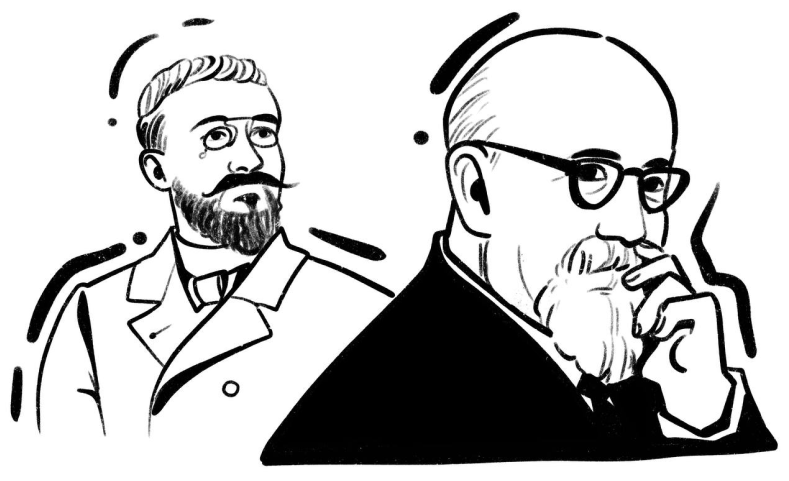
Eysenck’s Revolution
The Eysenck test, which we will discuss now, quickly gained popularity because it served two purposes: it introduced the test-taker to their own IQ and was fairly easy to interpret.
Consider this: not only did you have a completely legitimate opportunity to test your intelligence, but your employer, for example, also had a legitimate way to form what seemed to be an accurate opinion about you. Or was it perhaps inaccurate?
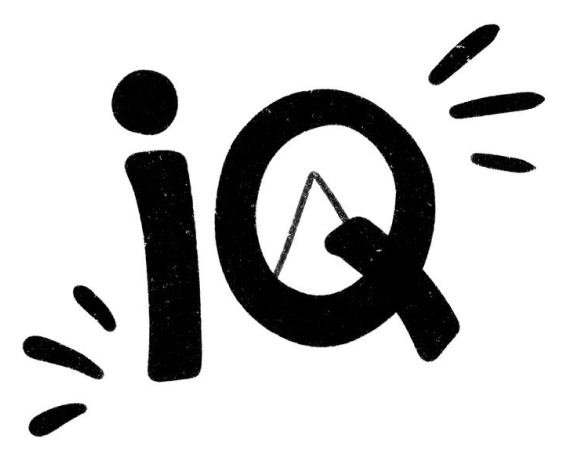
A Tarnished Reputation
The story of IQ has its own skeletons in the closet. Imagine finding yourself in a world where intelligence determines everything – from social status to appearance. And someone holds an instrument that, in essence, becomes a verdict on your future – a mere set of tasks.
This instrument is in the hands of Professor Eysenck, a man with a rather controversial reputation, tainted by the presence of fascist ideology in his scientific life. Initially, the professor denied any connections to the Nazis, yet he secretly developed a test for them, one meant to determine who was worthy of becoming part of a “genetically superior superhuman race.”

The author of the test was not an outright villain, and his relationship with fascist ideology was complex. At times, he publicly renounced his views, engaging in fierce debates with the ruling fascist party. At other times, Eysenck strongly supported close ties with the top echelon of the Third Reich, assisting them in their quest to create a “perfect race.”
Imagine the professor developing his theory under the assumption that the IQ of people of color “would likely be much lower than that of whites.” Hans Jürgen Eysenck’s ideas were so controversial that even in the United States, his works on intelligence were unofficially banned.
One can only speculate about the devious schemes the scientist may have plotted at night, trying to impose his vision of intellectual superiority on the world.
Persona Non Grata
Mutual disdain for Black Americans was just the tip of the iceberg for the professor who studied intelligence. Once, when he traveled to Europe to impress audiences with his lectures, poor Eysenck was met not with applause, but with a rotten egg to the face!
In the very heart of the world’s cultural capital, Paris, he was attacked by some crazed students! They seemed to think that the professor wasn’t “woke” enough and tried to awaken him with a few wild punches. But the inventor of the test remained true to his teachings, pretending as if nothing had happened. The professor’s research was disliked in many parts of the world.

The Intellectual G-Spot
The funniest joke about IQ tests is that high Eysenck scores don’t really reflect a person’s intelligence – they just show how good they are at taking the test.
But scientists insist that assessing a person’s intellectual abilities is important, and it should be done through testing. For example, Spearman, an English psychologist, observed that people who excel in one area often lead in many others as well. In other words, if you’re smart, you’re smart in everything. Spearman even came up with a special “g-factor,” which, in his view, characterizes general mental abilities.

It turns out that this “g-factor” is inherited, is linked to brain size, and other biological factors. Most importantly, it accurately predicts how a person will learn, work, and generally live.
However, scientists also caution that a single number can’t fully capture intelligence – there are many other important factors. But for now, the “g-factor” is the best way to objectively assess mental abilities. At least, it’s better than nothing!
A High Score Doesn’t Guarantee Quality
A high score doesn’t guarantee success! Eysenck seemed to know what he was talking about when he wrote in the preface to his IQ tests that achieving success requires not only high intelligence but also persistence, motivation, and the desire to succeed. While some bright minds with high IQs spend their lives waiting for their “moment to shine,” those with less impressive brains but with determination and focus have already found their place in life.
It turns out that the IQ test invented by Eysenck isn’t all that universal. Those with a more technical mindset might easily fail it, but their logic is sound. On the other hand, those in the humanities might struggle with logic, but imagination is their strong suit! In the end, no matter how you look at it, an IQ test score doesn’t always reflect a person’s true abilities.

By the way, people on Earth have become smarter – by 12 points, in fact. Is this a sign of humanity’s progress? Or have the tests just become easier? Although, that might not even matter. New Zealand scientist James Flynn proposed the theory that each successive generation will be smarter than the previous one. However, scientists have yet to fully explain this phenomenon.
According to Stanislav Drobyshevsky, Ph.D. in Biological Sciences and Associate Professor at the Department of Anthropology at Moscow State University, “IQ tests shouldn’t be trusted because, firstly, there’s no proper definition of intelligence, and, consequently, no measure for it, and secondly, such tests only assess how closely the tested person’s thinking aligns with that of the tester.”

Beauty Will Save the World
Research from the London School of Economics has shown that people with attractive appearances – both men and women – tend to have higher IQ levels. It seems that smart and beautiful people are naturally drawn to each other to produce even more successful offspring. Although, things often happen quite differently.
The age-old debate about which gender is stronger has also been resolved. Women have won. On average, women have higher IQs than men. A prime example is Marilyn Mach Vos Savant from Missouri, who at the age of 10 had the average IQ of a 23-year-old. So, ladies should feel free to showcase their intelligence in all its glory! Meanwhile, men can continue to argue that their brains are larger in size, weight, and the number of convolutions.

Intelligence Doesn’t Like Stress or Overheating
A bad mood negatively affects not only those around you but also your intellectual well-being and, consequently, your results. In more favorable emotional conditions, true intelligence can be much higher!
The brain also appreciates a state of calm, especially in the summer. During warm weather, the brain doesn’t want to work, and it doesn’t care that IQ scores might suffer as a result. It’s resting. There’s no need to worry about this; just give your gray matter a little workout, and everything will return to normal. Dumbbells, fitness, and tools for developing intelligence include sports, music, and meditation.
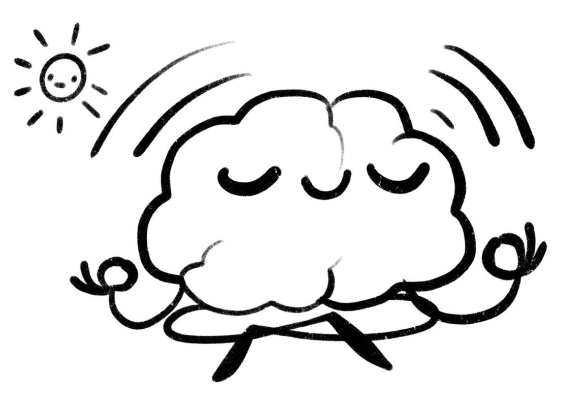
Low IQ Levels Can Be Life-Threatening
There’s a theory that highly intelligent people experience more worry and stress because they know more, try to calculate risks, and prevent problems.
But what about a life without intellectual strain? No problems, no pangs of conscience, no deep thoughts – just the sweet emptiness of existence. Paradise? Perhaps, but not for long. There’s a downside: people with low IQ levels are unable to solve problems and cope with stress.
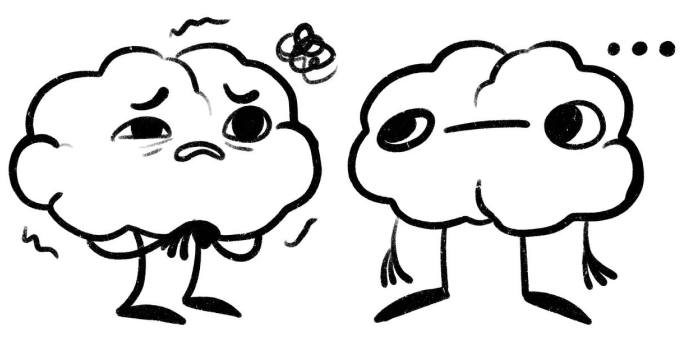
According to Swedish scientists, the lower a person’s IQ, the higher their chances of suicide. Not the best way to escape problems. This is yet another compelling reason to consider improving your IQ and avoiding a grim statistic.
No Increase in Degrees
Surprising news from scientists: those who not only raise the “degree” of their drinks but also frequently indulge in them often demonstrate high intellectual abilities.
However, this penchant has its drawbacks – IQ levels of people who indulge in alcohol remain high only temporarily. The side effect of alcohol consumption is gradual degradation. Our neural connections are quite fragile, and before embarking on a prolonged tasting of high-proof drinks, it’s worth considering the still-intact neural connections.
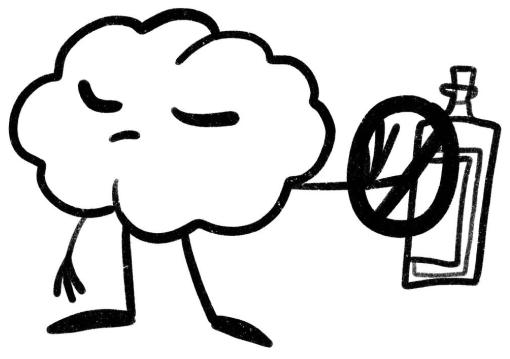
Human Genius Comes in Different Colors
It turns out that IQ is not just a dry number but an intriguing ratio between mental development and biological age.
Imagine that if you have mastered all the necessary knowledge for your age and a bit more, your IQ score might exceed 100 – and that’s normal! But if you excel in a particular area, congratulations, your score might rise to 105, 120, or even 140! However, if you missed something important, you’ll have to settle for 95, 92, or even 87. And the story continues…
There are six main types of intelligence, each adding a different hue to the picture of human genius. Logical intelligence is our brain’s attempt to understand and correlate facts. Academic intelligence showcases accumulated knowledge. Social intelligence impresses with the ability to read others’ thoughts and moods. Artistic intelligence creates images, understands metaphors, and hidden meanings. Practical intelligence is displayed by people with skilled hands. And finally, sensorimotor intelligence unveils the secrets of controlling one’s body.
Each of us possesses all types of intelligence, but usually, one type dominates while others may be well-developed or even remain in the background. Thus, comparing a physicist to an artist is like comparing pineapples to banana peels: both are remarkable, just in different ways.
Yes, theoretical physicists often top the rankings. But can we say that Aivazovsky is less intelligent than Landau? Certainly not! They simply have different types of intelligence. Artists might achieve the best results in their field, but IQ tests may not capture their abilities, so drawing conclusions from this should be avoided.
IQ tests primarily measure logical abilities. Scientists with high IQs, say 130 and above, can certainly claim intellectual superiority. However, for an actor or athlete, a score of 110 is sufficient for success; this doesn’t make them less intelligent, but rather, their talents manifest through different skills.
The brain… intelligence… mind… where is the boundary that separates these concepts? Can the universe of ideas and emotions be quantified with numbers and scores?
Diagnostic IQ tests are merely attempts to classify and explain intellectual abilities in conjunction with cognitive and psychological processes. Such tests function like a sieve, filtering out only general logical abilities: some aspects remain on the surface, while the majority is hidden. Our capabilities are far greater than any test can encompass. The brain is a true cosmic odyssey, and it’s up to you to decide where to venture next!

Hans Jürgen Eysenck
Level of Innovation:A test that tells you how smart you are—or doesn’t.
Real-World Usefulness: · Opportunity to determine if “I am me” or if “I am no longer me”
· Instant self-esteem boost
· Chance to feel like a genius for a few minutes
· Ability to find out how much smarter you are than your closest friend
· Opportunity to show off that your IQ is higher than your boss’s
· A reason to boast on a date: “I have an IQ of 120, what about you?”
· Ability to say “According to Eysenck, I’m in the top percentile” at parties.
· Risk of overestimating one’s own importance
· If the test is not taken carefully or if there are distractions, your IQ score may end up being lower than that of a tablet
· During the test, you might forget why you were taking it in the first place
· One wrong answer could make you feel that your whole life has been a waste
Your self-esteem is fine without the test, but if you really want to spend $50, click here!
As Sherlock Holmes would say:“Elementary, my dear Watson! We all know that IQ is just another way to measure how much we can confuse each other in conversations about trivial matters.”
The Roman Empire has fallen. But we have scientific content that doesn’t survive, it triumphs!
Thank you!




